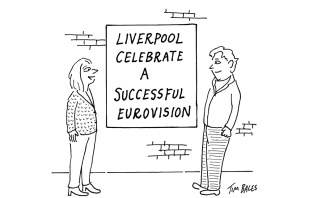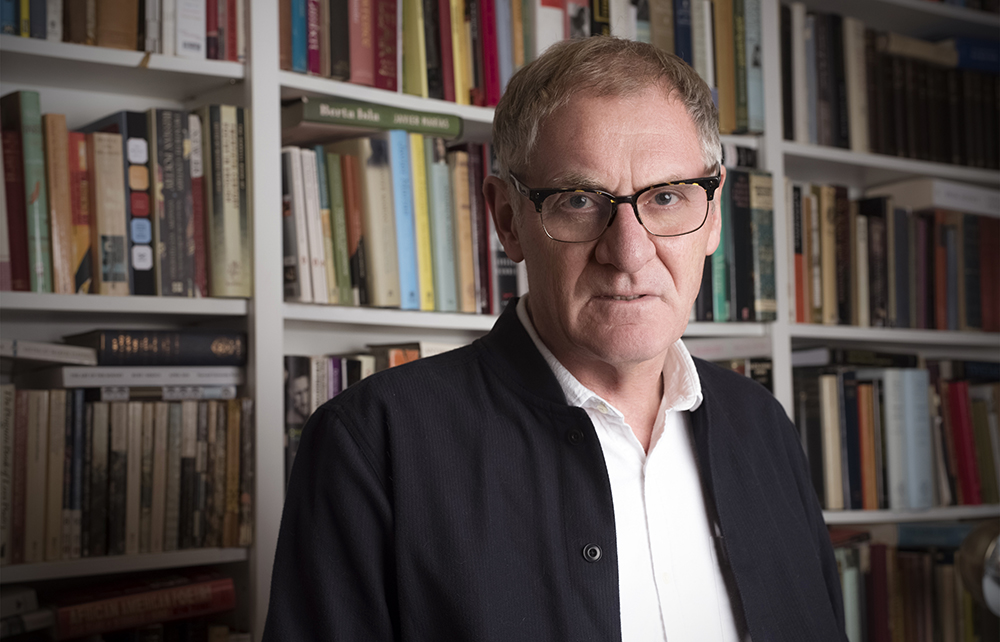Andrew Motion has previously published a memoir of childhood, In the Blood (2006), but this new book focuses on his becoming a poet, his search for mentors and subsequent writing life. Motion, a country boy, has a Words-worthian bent, and talks about the pull of evocative recollections, already hardening when he entered adulthood, as ‘equivalent to the songs of the Sirens’, explicitly ‘spots of time’. He is, as one might expect, good on poetry’s general appeal – ‘ it prizes compression and distillation in a world of deliquescence’ – and perceptive on the root cause of its lure for him.
The appeal of ‘falling in love with a dead man’ was always part of Motion’s being drawn to poetry
Those who know Motion’s writing will be aware of the formative wound of his mother’s riding accident. Poetry offered, in Motion’s reading, a means of arresting time: ‘It might preserve my mother’s life in words that survived her.’ He is enraptured by posterity: ‘The ancient black words looked so delicate on the whiteness, their survival felt like a miracle.’ He argues against a student’s assertion that all poems are love poems: ‘I thought all poems were a form of elegy.’

Poetry also provided ammunition in a phoney war against his father which is, surprisingly, one of the book’s structuring throughlines. A teenage pilgrimage to Rupert Brooke’s grave on Skyros is an act of ‘loyalty to a creed that had nothing to do with parents’; and defiance, albeit often unwitting or regretted, runs through his relationship with his father, ‘the saddest person I’ve ever known’. There’s a dawning realignment in Motion, for so long a poet associated with the tragedy of his mother: ‘Now that my father was no longer someone I had to fear, or dance around in a prolonged waltz of obligation… I could see that his life had been the larger force.’ Poignant scenes of a son trying vainly to get his elderly father to care about his Poetry Archive initiative, or the protocol which scuppers a reparative offer to introduce him to the late queen, are some of the most moving here. When Motion, visiting his father in hospital, ‘felt his thin arm-bone through the sleeve of his dressing gown’, he blurs two sets of father figures, the real and the sought-out: ‘Suddenly I remembered walking round the hospice garden with Philip.’
Philip is, of course, Philip Larkin, the largest – at least in terms of influence and personal contact – of several mentors discussed. If the elegiac is the strongest force in Motion’s verse, the appeal of ‘falling in love with a dead man’ was always part of his being drawn to poetry. For him there was less an anxiety of influence than a grateful acceptance of forebears as something between guru and sherpa: ‘Poetry had led me such a long way from home and the things I first knew, I felt glad to have people guiding me.’
Motion the pup sought out the company of elder statesmen, initially acquaintances of admired poets, one who’d known Brooke (and who almost apologetically predates on a callow Motion), Louis MacNeice and others, before alighting on the thing itself, in the shape of an ailing W.H. Auden. He is upfront about these relationships, both sentimental and founded on worldliness – ‘My need for a mentor… coincided with my need for approbation,’ he says of seeking Auden’s approval. He goes above and beyond in tracking down Larkin, taking a job at Hull in the hope of snaring its librarian in his net of devotion: ‘Would that mean my own reputation would grow by association, and disproportionately fast because Larkin was so inaccessible?’ The two became unlikely friends, and Motion eventually served as Larkin’s executor and biographer. He says they ‘chose not to make an issue of politics’, in part as a way of explaining how he, too, was shocked by the contents of Larkin’s letters.
He is given to unexpected moments of semi-mysticism: the ‘God of Symbols’ crops up a few times, cracking a watch in a moment of sexual tension or exploding a car as a marriage collapses. On the personal front, he tends towards discretion, drawing various veils at times of distress, in what feels a refreshing move in a publishing climate of near-hypothermic exposure. When offered an editorial director’s role during his time at Chatto & Windus, he thinks he’ll have to ‘toughen up’; but that’s to underplay a steeliness and ambition which seem omnipresent, albeit running counter to the self-destructiveness he also correctly diagnoses.
Rich in anecdotes from a public-facing life courtesy of the ‘double-edged chalice’ of the laureateship, witnessing Tony Blair’s ‘Bambi eagerness’ and a passable gag from the then Prince Charles about frog kissing, Motion wants a line said to him by an Oxford porter to be the case: ‘For a bloody poet you’ve got your feet on the ground.’ He comes across as somewhat less terrestrial, but more interesting for it.






Comments